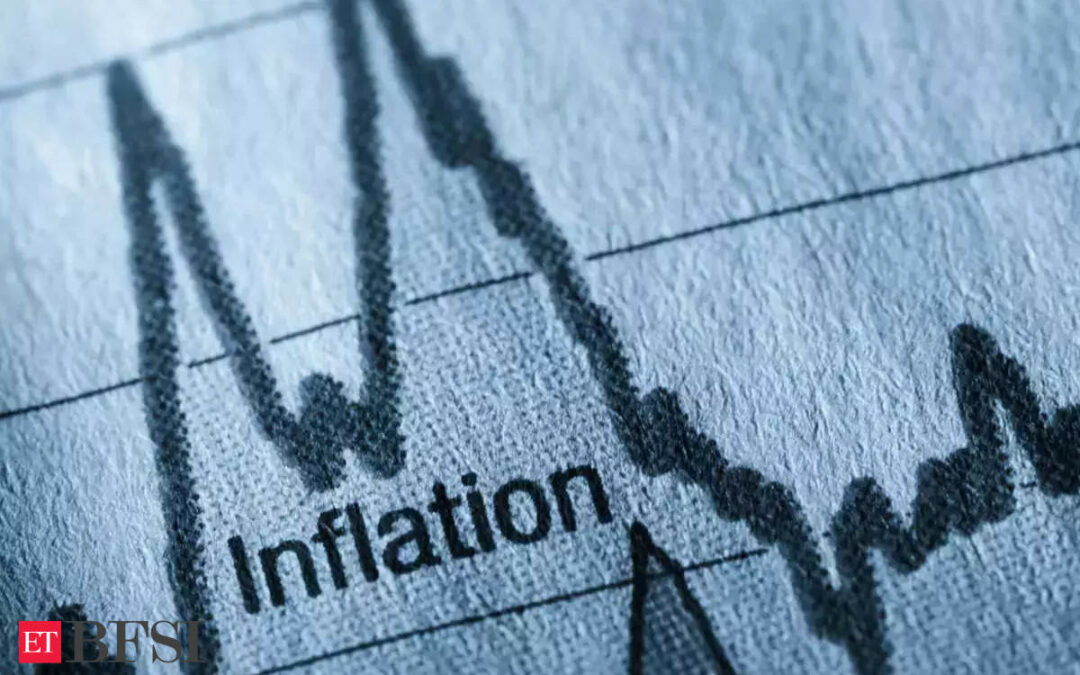Amid India’s struggles with soaring prices, maintaining control over inflation stands as a pivotal task for the Narendra Modi government in the forthcoming interim budget. The administration will have to implement measures aimed at consistently curbing the upward trajectory of prices, while in recent months it has taken many steps including export ban or curbs.
The Reserve Bank of India (RBI) is tasked with bringing down the high inflation levels within its tolerance band of 2-6 per cent. However, inflation rate in India has been too adamant to come down to the mid point of central bank’s comfort level.
The year started with inflation hovering around 6.5 per cent, above the RBI’s tolerance band of 2-6 per cent. The RBI has enacted measures to combat this economic concern. RBI Governor Shaktikanta Das has often referred to keeping ‘Arjuna’s eyes’ on galloping inflation rate that has singed consumers in India and kept policymakers busy in 2023.
Food inflation stands as a significant driver of price spikes, exacerbated by unpredictable weather patterns. Unseasonal and uneven rainfall in recent years have also compounded the challenges policymakers confront.
The government’s anti-inflation policies can encompass stringent fiscal and monetary discipline, rationalisation of essential commodity duties, efficient supply-demand management through liberal tariff policies and fortification of the public distribution system.
In light of the prevalent inflation, the forthcoming budget assumes critical importance. The budget’s focus on mitigating food supply volatility can potentially stabilise food inflation and elevate India’s inflation management.
The Consumer Price Index (CPI) remains pivotal, mirroring urban consumers’ average expenditure on goods and services. The CPI’s stability, or lack thereof, is poised to influence fiscal strategies outlined in Budget 2024.
Finance Minister Sitharaman may introduce fiscal measures like tax reductions to combat rising prices and address persistent inflationary trends. Experts advocate a balanced blend of fiscal and monetary policies to mitigate inflation’s impact amid uncertainties.
The interim budget must however tread cautiously in selecting schemes and new programmes, ensuring growth incentives without compromising inflation containment efforts.
The primary objectives of the interim budget on February 1st will likely be enhancing exports, reinforcing the progress made in attracting investments to strategic and burgeoning sectors, reducing the current account deficit, and charting a definitive path toward robust economic growth while maintaining fiscal consolidation efforts.
BUDGET FAQs
1. What is inflation? A widespread increase in the cost of goods and services within an economy indicates inflation, which is a decline in the purchasing power of money.
2. What is the inflation rate in India?
The median opinion among analysts is that inflation, as determined by the yearly change in the consumer price index (CPI), increased from 5.55% in November to 5.87% in December.
3. How is inflation managed in India?
Through monetary policy, the Reserve Bank of India (RBI), the nation’s central bank, is essential in containing inflation. In order to affect the money supply and credit in the economy, the RBI modifies important interest rates, such as the repo rate.










